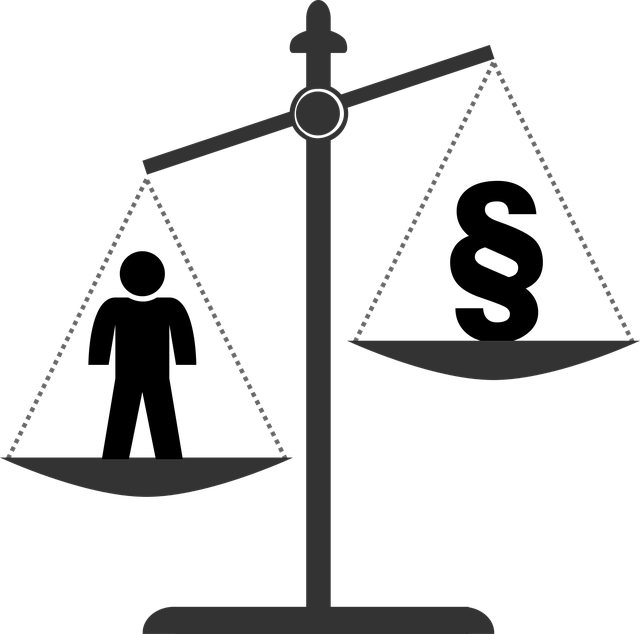In today's complex financial landscape, consumer protection laws safeguard individuals' rights. To enforce these rights, one can file a lawsuit with the help of specialized legal professionals against businesses violating these laws. This involves identifying violations, gathering evidence, consulting an attorney, and filing a complaint. The process may lead to negotiations, mediation, or trial, ultimately securing verdicts that protect consumers. For financial disputes involving RF Finance firms, understanding consumer protection laws and gathering relevant evidence are crucial steps in effectively filing a lawsuit.
“In today’s financial landscape, understanding your rights under consumer protection laws is paramount. This guide delves into the essential aspects of navigating legal disputes with RF Finance law firms. We explore how to identify violations and gather evidence, crucial steps before filing a consumer protection lawsuit.
Learn the process from start to finish, including a step-by-step guide on initiating legal action. Discover your rights and options in seeking compensation and resolving disputes effectively.”
- Understanding Consumer Protection Laws and Your Rights
- Identifying Violations and Gathering Evidence
- The Process of Filing a Lawsuit: Step-by-Step Guide
- Seeking Compensation and Resolving Disputes with RF Finance Law Firms
Understanding Consumer Protection Laws and Your Rights

In today’s complex financial landscape, consumers are protected by a robust framework of laws designed to safeguard their rights and interests. Consumer protection laws are a crucial aspect of ensuring fairness in transactions involving goods and services, especially in high-stakes cases related to finance and business. Understanding these laws is essential for both consumers and respective business entities.
When it comes to protecting consumer rights, one critical step is knowing how to file a lawsuit under relevant consumer protection legislation. If you believe your rights have been violated by a business, whether it’s a banking institution or any other financial service provider, you have the legal option to take action. By consulting with experienced legal professionals specializing in RF finance law, individuals can navigate these complex laws and, if warranted, initiate a lawsuit to seek compensation for damages, restitution, or other remedies available under the respective business protection regulations.
Identifying Violations and Gathering Evidence

When navigating the complex landscape of consumer protection laws, identifying violations is a critical first step. Law firms specializing in RF finance serve as guides through this intricate process. They employ meticulous strategies to uncover potential infringements, scrutinizing documents and financial records to identify patterns indicative of wrongdoing. This involves a comprehensive review of all stages of the investigative and enforcement process, ensuring every detail is examined under the lens of legal expertise.
Evidence gathering is a pivotal phase in preparing a robust case for consumer protection lawsuits. These law firms have an unprecedented track record of success, leveraging their deep understanding to collect compelling evidence against both corporate and individual clients. Through strategic discovery processes, they uncover the facts, ensuring every element of the violation is documented and ready for legal scrutiny. This meticulous approach maximizes the chances of a favorable outcome, protecting consumers’ rights and ensuring accountability.
The Process of Filing a Lawsuit: Step-by-Step Guide

Filing a Consumer Protection Lawsuit involves a structured process designed to ensure fairness and justice for consumers. The journey begins with identifying potential violations, such as deceptive marketing practices or unfair business conduct, that have harmed individuals or philanthropic and political communities. This realization prompts affected parties to gather evidence, including documentation of purchases, communications with the company, and any relevant receipts, to substantiate their claims.
Next, they consult with a qualified lawyer specializing in consumer protection law who will guide them through the legal process. The attorney reviews the case, advises on the best course of action, and assists in preparing and filing a complaint with the appropriate regulatory body or court. This initial step is crucial for initiating the official proceedings. Following this, all stages of the investigative and enforcement process unfold, leading potentially to negotiations, mediation, or, if warranted, a trial, culminating in winning challenging defense verdicts that uphold consumer rights.
Seeking Compensation and Resolving Disputes with RF Finance Law Firms

When facing financial disputes with RF Finance law firms, understanding your rights is crucial. If you believe you’ve been wronged or treated unfairly, it’s important to know how to file a consumer protection lawsuit. The first step involves gathering evidence and documenting any interactions or communications with the firm, as these can be vital in supporting your case.
Consumer protection laws provide a framework for individuals to seek compensation and resolve disputes effectively. By familiarizing yourself with the legal process and the role of RF Finance law firms in it, you can navigate all stages of the investigative and enforcement process, ensuring justice for your situation. Remember that these firms are accountable to their clients, and by exercising your rights, you contribute to maintaining fairness within the philanthropic and political communities they serve.
Understanding consumer protection laws is empowering, especially when you know how to navigate legal actions. By identifying violations and gathering solid evidence, individuals can take control and file a consumer protection lawsuit against RF Finance law firms. This comprehensive guide outlines the steps to initiate the process, ensuring that your rights are protected and potential compensation is within reach. With the right approach, consumers can resolve disputes effectively and even bring about positive change in the financial industry.






